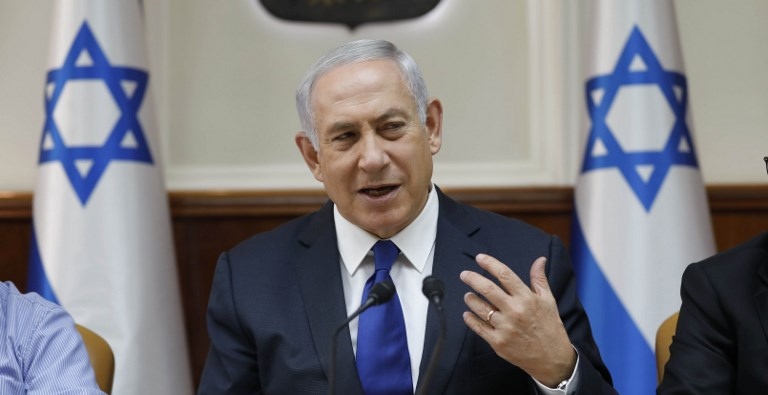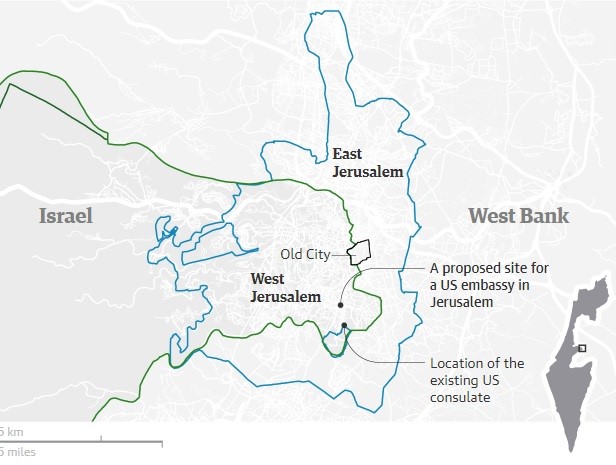Israel’s move against Palestine
March 8, 2018 | Expert Insights

Israel has passed a law that would make it easier for the government to strip any Palestinian living in Jerusalem of their residency rights.
Background
The conflict between the people of Jewish ancestry and Palestinians can be traced back to Biblical times. Israel is the world's only Jewish state. The Jews staked claim for a land of their own due to religious reasons. They trace their origins to Abraham, who they consider their patriarch. A number of Jews migrated to Europe predating the Roman Empire. Though a prosperous commune, the Jews were subjected to a wide range of restrictions and discrimination.
In 1947, United Nations adopted a plan to partition Palestine into Arab and Jewish sections. In the immediate aftermath, the war between Arab nations and Israel took place. The Arabs were initially on the offensive, but their military resources dried up when the UN declared an arms embargo on the region. In 1949, Israel signed a series of armistice agreements with the Arab nations involved. No peace treaties were signed and in 1967, Israel fought the decisive “Six Day War” against Egypt, Jordan and Syria.
Major wars such as the War of Attrition, Yom Kippur War and the Gaza War have been fought over the years. Nearly every effort by the international community to establish peace in the region has failed.
Israel’s GDP per capita is more than $35,000, and the unemployment rate is at 5%. Due to historical reasons, Palestine has not been able to form a completely independent economic system. Foreign direct investment is almost non-existent. Israel is ranked 19 on the UN’s Human Development Index ranking of 177 countries, while Palestine is far lower in the same index. Palestine's main economic income is aid from the international community and Palestinian labor in Israel or other places.
Jerusalem
On December 6th, 2017, US President Donald Trump pivoted from decades’ long US foreign policy and recognized Jerusalem as the capital of Israel. Trump’s announcement triggered a wave of protests and violence across the Middle East. In addition, the US administration announced that it would be withholding nearly half of the initial aid it was planning on giving to a UN agency that helps Palestinians. The region is considered vital and holy by both Israelis and Palestinians.

Analysis
As tensions between the two neighbors continues to escalate, the Israel has passed a law that would empower its Minister of Interior to revoke the residency rights of Palestinians in Jerusalem. The country has said that this law was passed by the parliament and is applicable on grounds of a "breach of loyalty" to Israel.
With this new law, Israel's Interior Minister Aryeh Deri can strip any Palestinian of their residency rights as long as he thinks that the person poses a threat to Israel’s sovereignty. Hanan Ashrawi, a senior member of the Palestine Liberation Organisation (PLO), described the law as "an extremely racist piece of legislation. "By unethically stripping the residency of Palestinians from Jerusalem and depriving the rights of those Palestinians to remain in their own city, the Israeli government is acting in defiance of international law and is violating international human rights and humanitarian laws," said Ashrawi, according to a statement published on Wafa, the official Palestinian news agency.
Meanwhile, Israeli Prime Minister has noted that if Palestine stopped funding terror groups, then peace between the region was possible. During an address at the American Israel Public Affairs Committee Policy Conference he said, “To get peace, President Abbas has to embrace peace and to stop supporting terror … He pays about $350 million a year to terrorists and their families.”
Assessment
Our assessment is that is that the ongoing conflict between Palestine and Israel is highly complex and layered. It has to be approached through thoughtful mediation and parties involved should be willing to make compromises in order to achieve lasting peace in the region.








Comments